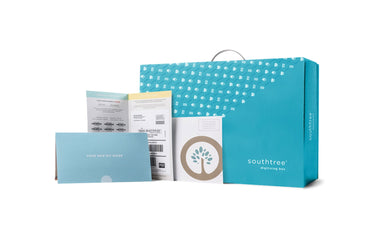In the midst of full-time jobs, relationships, squeezed-in workouts, kids, a social life, and a multitude of other hobbies and day-to- day responsibilities, the laundry piles up, the to-do lists get longer, the dust bunnies accumulate, and your head feels like it just might explode. While taking time to catch up on organizing isn’t the most fun way to spend your limited free time, doing so could actually be the remedy to feeling so overwhelmed. Clearing away clutter doesn’t just help you feel more comfortable at home or in the office, but it has a variety of physical and mental benefits as well.
Reduced Stress
Studies show that people who have cleaner and less cluttered homes naturally feel better rested and refreshed, while those who are more unorganized are susceptible to stress, depression, and fatigue. Researchers say that coming home to a dirty kitchen counter and heaps of laundry can impact the levels of cortisol in the brain, which affects mood, sleep, and overall health. On the contrary, coming home to a clean and at least semi tidy space stimulates the brain and stirs relaxation.
Healthier Lifestyle
People who work in cleaner spaces are more likely to choose healthier, natural food options, studies show. You’re also more apt to plan meals and prep healthier foods—rather than eat the less-than-nutritious things that are readily available.
Additionally, organization helps with sleep. If less mess means less stress, then it’s no wonder you’ll sleep better! By keeping your bedroom tidy—a clean bedside table, with a large glass of water and a reading book; a nicely made bed with fresh sheets and pillows; a swept floor and an orderly closet—you’ll be doing your body and your brain a favor! Plus, if you’re more organized with tasks and staying on top of your small to-do lists throughout the day, you won’t be as worried about cramming in little chores right before bed. You can actually use the bed for sleep and rejuvenation.
Improved Relationships
Happy relationships with significant others, friends, and family are a key to health and success. But a lack of organization can interfere. Clutter in the home is said to increase tension between couples living together. In friendships, an inability to make plans and set aside time together can result in a lack of trust. If you can plot a specific night of the week to get together with gal pals or the bros, you’ll come
across as much more reliable, and your friendships will feel more like a two-way street. For this reason, organization plays an integral role in maintaining positive relationships that benefit everyone involved.
Better Results
Beyond organizing your home and office, organizing your thoughts and routines are just as important. This includes setting goals, making plans, and maximizing your day to have time for the things you want to do. If you can organize an exercise regimen or set aside a time of the week to work on that book you’ve always wanted to write, you are much more likely to see results than if you don’t put an organized plan in place. All in all, organization boosts productivity and breeds optimal results in every facet of your life.
Some Organizational Tips
Next you come home from a busy day, don’t throw your shoes into the already massive shoe pile in the doorway entrance; don’t leave your dirty dishes stacked in the sink for another time; don’t eat chips and salsa for dinner and wait another week to buy legitimate groceries. Do the small things now. Here are some small tips on how to tackle it all:
- “10-Minute Tidy”: Take 10 minutes every day to do some sort of cleaning and/or organization. Wipe the countertops, unload the dishwasher, start a load of laundry (and remember to switch it to the dryer), bathe the dog—whatever it is, just do something that makes your space feel more livable.
- Jump on the to-dos: Tackle more on your to-do list than what you add on. If you’ve added three chores to list, promise yourself to take care of at least four things already on there. Otherwise, the list will just continue to stack up, and you’ll find yourself with two-month- long overdue bills, forgotten birthdays, Tapes and pictures that are unwatchable and a whole strew of undone chores that could’ve been totally manageable but are now insurmountable. Better yet…
- Separate your to-do lists: Have one list that’s for daily chores and more urgent things, and have a more long-term list that you attend to on a week-to- week or month-to- month basis. Just be sure that you do what you can each day to take care of both the short- and long-term things.
- Prioritize the closet: If your closet is in top shape, you won’t spend as much time worrying about what to wear, or wasting minutes every morning digging around for your lost left shoe. This clears up a lot of time and energy, and it decreases stress that occurs immediately post- waking up. You can have a much better start to your day when your closet isn’t a disaster.
- Designate a day: Pick at least one night a week that you set aside to organize and clean. This doesn’t mean you have to spend four hours every Wednesday night—when your favorite show is on TV—scrubbing toilet seats and vacuuming the entire house. It just means that you’ll promise to take a bit of time on Wednesdays to take care of the more urgent things. In the same way, set aside a day that you buy groceries and attend to food prep. And most importantly, elect a day to yourself—free of chores, plans, and overtime.
When you’re feeling overwhelmed, a to-do list and untidy home can make life feel even more overwhelming. But, if you take time to attend to the amassing to-dos and organize the messy closet, you might just find that everything else in life doesn’t seem so impossible after all. In fact, it could totally chance your life!
_________________________________________________________________________
Looking to digitize your memories? With Southtree, you can preserve your family memories to last forever. Send in your aging tapes, film, picturesand audio recordings. You'll receive new DVDs or digital copies with your originals, safely simply.













